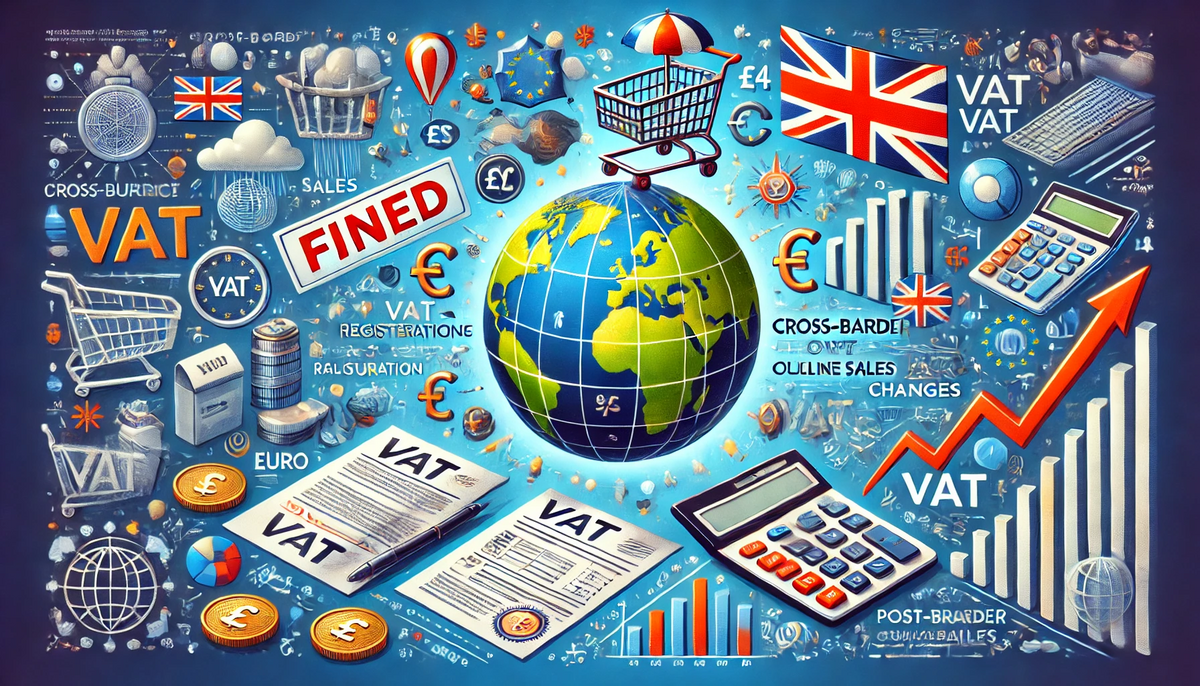
The Importance of E-Commerce VAT Regulations
As e-commerce continues to grow at an unprecedented pace, businesses are no longer confined by geographic borders. With the advent of globalised markets and cross-border shopping, tax authorities are tightening regulations to ensure that businesses, regardless of where they are located, pay taxes where their customers are based. In both the European Union (EU) and the United Kingdom (UK), new VAT (Value-Added Tax) regulations are shaping the way online retailers must manage their taxes, with more changes expected on the horizon. These reforms aim to create a level playing field between online and offline retailers while ensuring that tax revenue is properly allocated to the jurisdictions where consumption occurs.
For businesses selling online, especially those engaging in cross-border sales, it is critical to stay abreast of these changing VAT rules to avoid non-compliance, which could result in fines and penalties. The most notable changes in the EU and UK VAT regulations specifically impact e-commerce businesses selling to customers across borders, and they demand that companies adjust their VAT processes accordingly.

Key VAT Regulatory Changes for Cross-Border E-Commerce
The UK’s exit from the EU (Brexit) has significantly altered the tax landscape for UK businesses selling goods and services to EU customers. While the UK is no longer part of the EU VAT regime, businesses operating in e-commerce need to understand the new rules governing their operations post-Brexit.
UK’s Post-Brexit VAT Rules
Post-Brexit, UK businesses selling to the EU must now register for VAT in the EU countries where their customers are based if their sales exceed the country’s VAT threshold. The EU has simplified this process with the introduction of the One-Stop-Shop (OSS) VAT system, which allows businesses to file VAT returns through a single EU country, rather than registering in each country individually. However, businesses still need to ensure they remain compliant with individual member states' rules on VAT rates and thresholds.
On the UK side, businesses importing goods into the UK must deal with the changes in import VAT. Goods valued at more than £135 that are imported into the UK from outside must now have VAT paid at the point of sale, rather than the point of importation. Businesses selling goods below this value will face different rules, such as the Marketplace Facilitator VAT scheme, which applies if they sell through third-party platforms like Amazon or eBay.
EU’s VAT E-Commerce Package
For businesses selling into the EU, the introduction of the VAT E-commerce Package in July 2021 was a significant development. It simplified VAT obligations for cross-border sales by:
- Abolishing the low-value consignment relief for imports into the EU, meaning that all goods, regardless of value, are now subject to VAT.
- Introducing OSS and Import One-Stop-Shop (IOSS) schemes to allow businesses to manage VAT returns more efficiently. The IOSS is used for goods imported into the EU with a value of up to €150, and it simplifies the VAT process for businesses.
- Requiring marketplace platforms to collect and remit VAT on behalf of sellers for goods below the €150 threshold.
These reforms reflect the increasing complexity of VAT rules for businesses selling across borders, particularly as governments look to capture tax revenue from the growing e-commerce sector.
Action for CTA Members: Ensure VAT Compliance
For CTA members involved in online sales, ensuring compliance with VAT rules is now more critical than ever. Whether selling to the EU or within the UK, it is vital to keep VAT systems and processes up to date. Below are essential steps to ensure compliance:
- Register for VAT in the necessary jurisdictions – If your business exceeds the VAT threshold in a particular EU country, you will need to register for VAT there or use the OSS system to manage multiple registrations.
- Ensure you’re using the right VAT scheme – Whether it’s OSS for the EU or the new UK import VAT rules, using the correct scheme is essential for compliance and avoiding penalties.
- Monitor VAT thresholds – Ensure you track when your sales exceed the VAT thresholds in specific countries and adjust your VAT registration and filings accordingly.
- Seek professional advice – VAT rules can be complicated, and changes can be difficult to navigate without professional help. Engaging a tax adviser who understands cross-border e-commerce VAT regulations can save your business time, money, and potential fines.

Conclusion
The future of VAT regulations for e-commerce businesses is evolving rapidly, with governments working hard to adapt their systems to the growing global online marketplace. For CTA members, staying informed about these regulatory changes is essential to remain competitive and compliant. Failure to adhere to the latest VAT rules can lead to severe penalties, impacting a business’s financial health and reputation. By updating VAT processes and systems now, e-commerce businesses can ensure they are prepared for future changes and can continue to thrive in an increasingly complex regulatory environment.
Published - 27th November 2024






